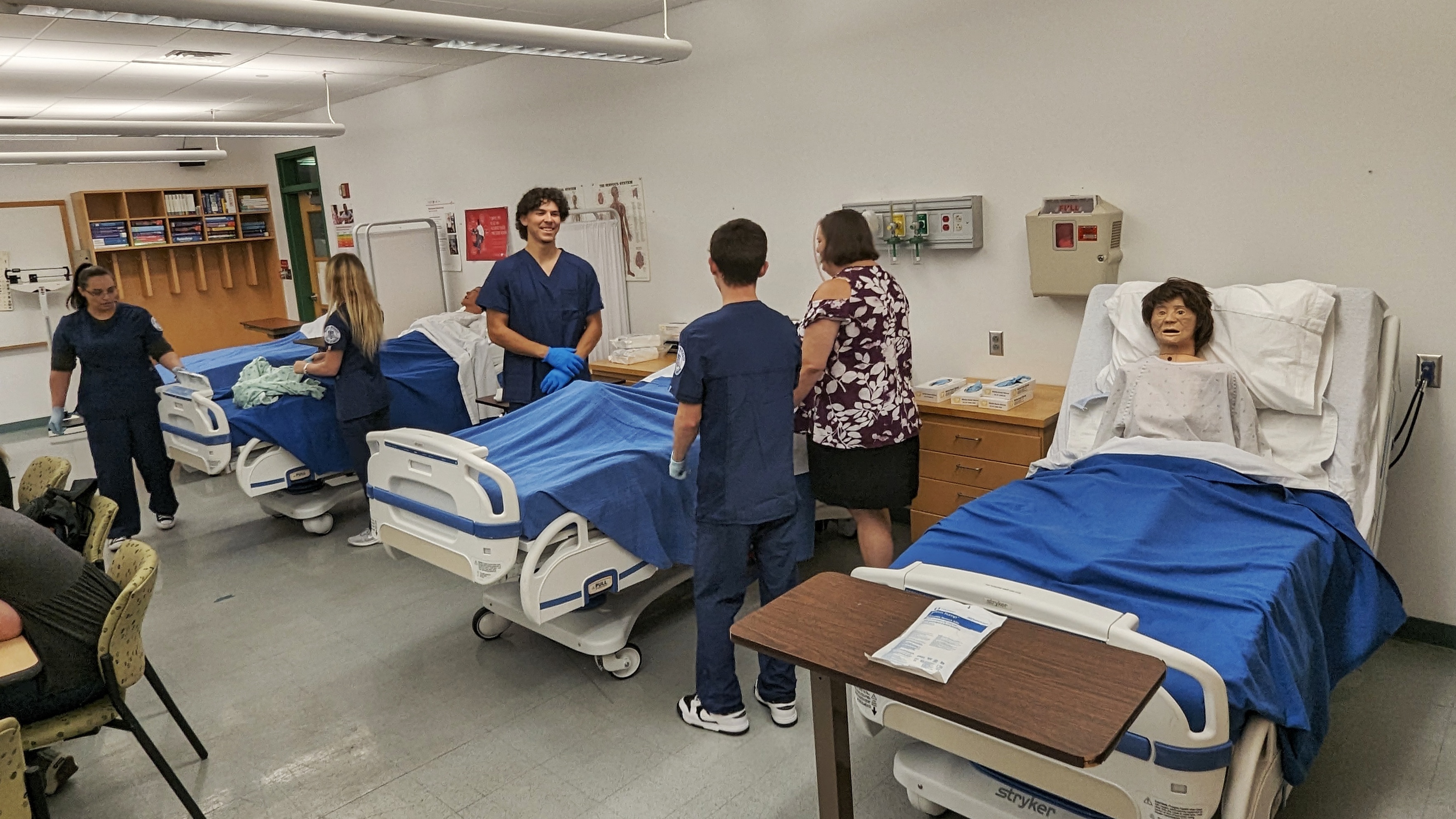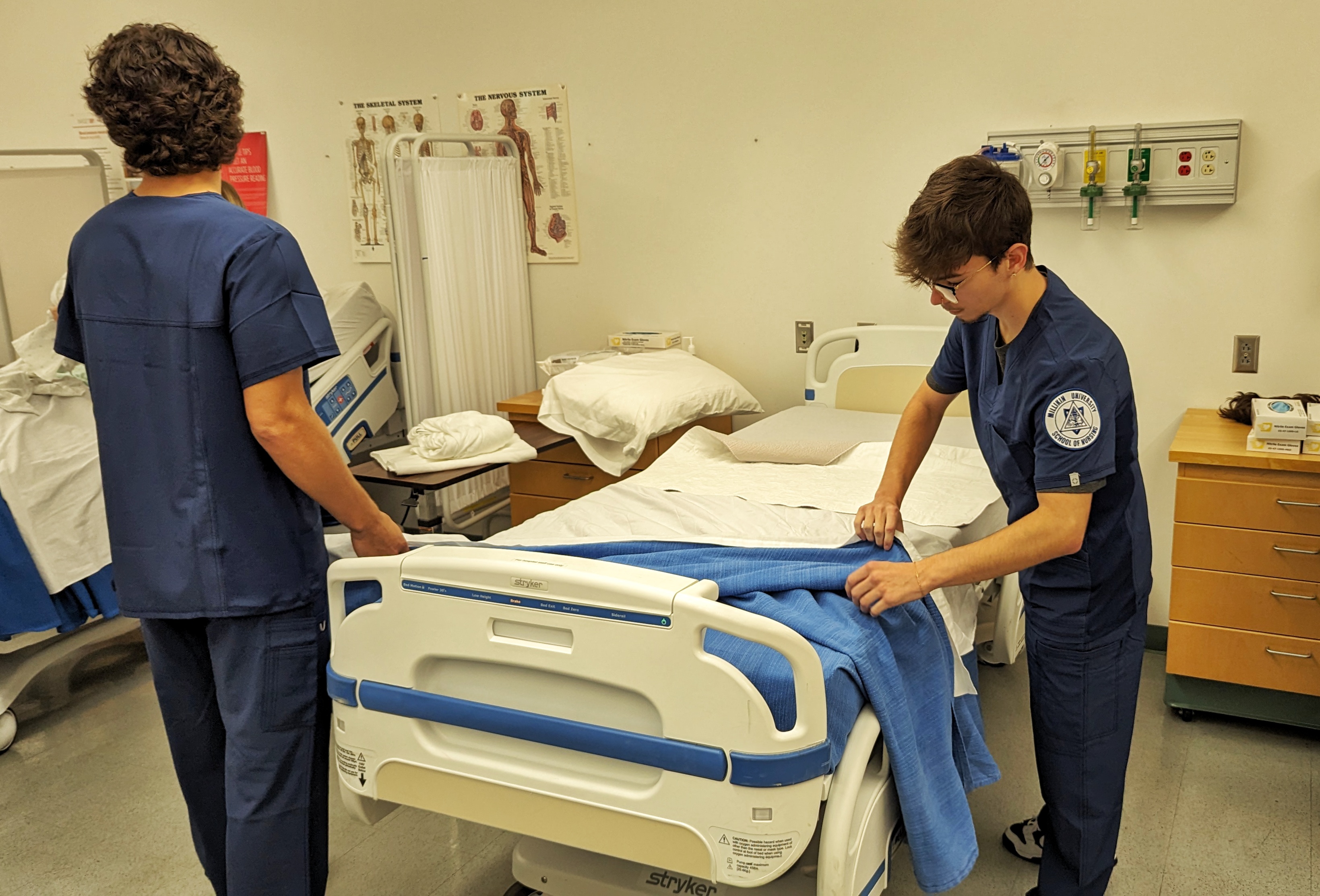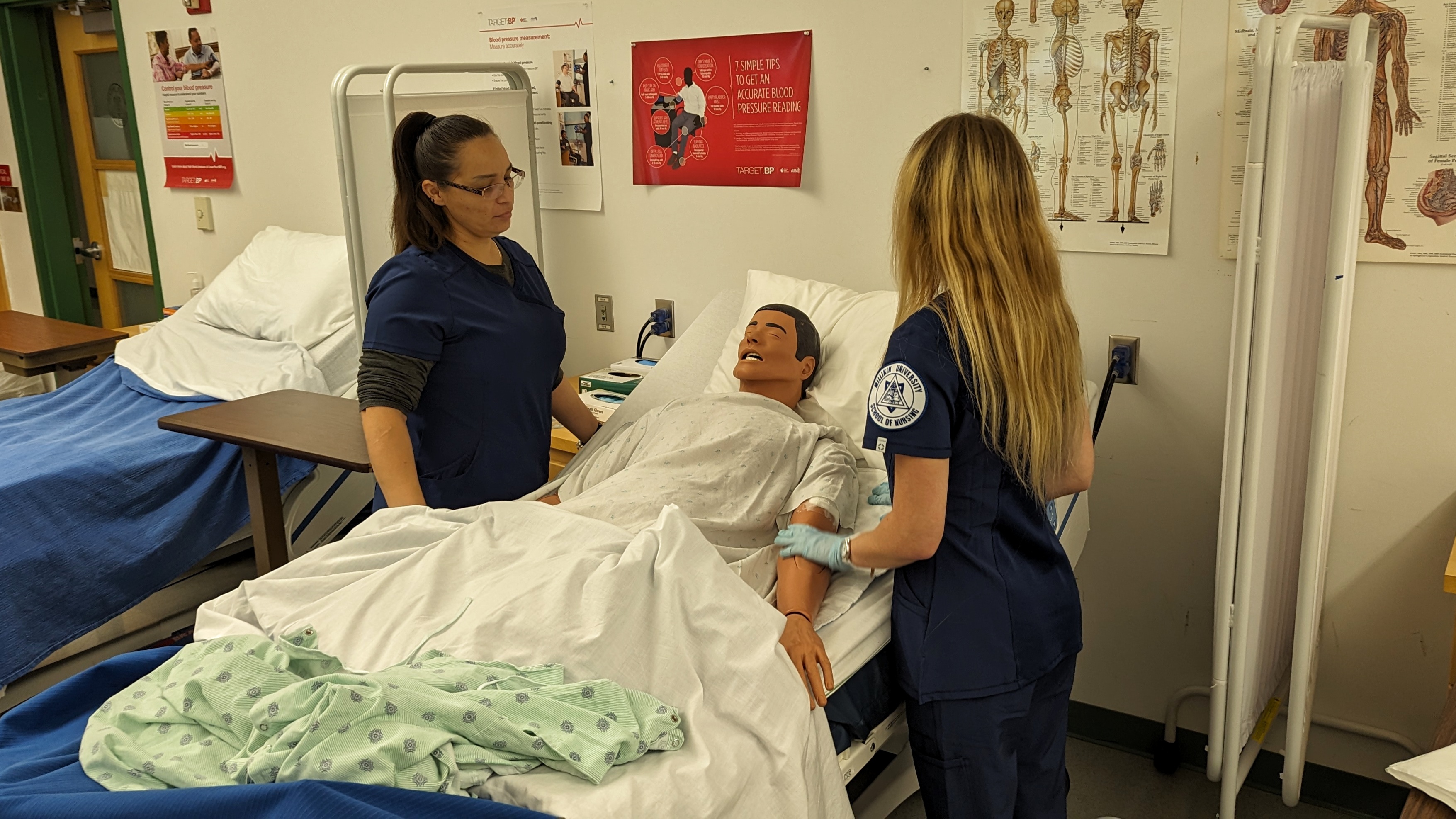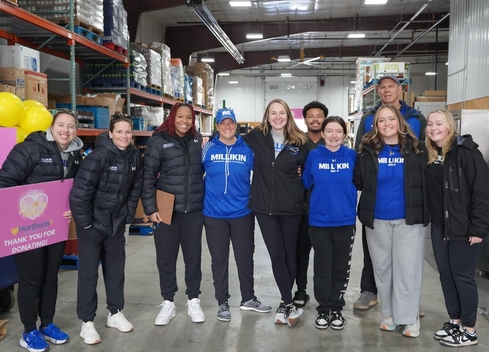DECATUR, Ill. – Millikin University’s School of Nursing recently received a generous donation of six hospital beds from Decatur’s HSHS St. Mary’s Hospital. The beds will be used in the Nursing program’s Health Assessment Lab and the Campbell Family Nursing Simulation Lab in the Health Sciences Center.
The donation is another step in a very strong relationship between the School of Nursing and HSHS. Millikin’s on-campus Health Clinic is run by HSHS and St. Mary’s CEO Theresa Rutherford ’90 is a Millikin School of Nursing alum.

“HSHS and Millikin Nursing have a long-standing collaborative relationship and we value our partnership with HSHS. St. Mary’s and St. John’s (in Springfield) are among the community agencies we rely on for outstanding clinical experiences for our nursing students,” Millikin Interim Director of the School of Nursing Dr. Teresa Gulley said. “Our nursing students are embedded at both St. Mary’s and St. John’s for clinical experiences, which we value at Millikin as a key part of our program of Performance Learning.”
With the beds in place in Millikin’s Health Assessment Lab, Millikin students are already using them in their coursework focusing on the basics of patient care.

“Having the most recent hospital beds fills the learning environment with the equipment students will be using daily,” Gulley said. “The health assessment lab is a safe space for entry nursing students to learn basic nursing skills and increase their comfort level before caring for patients in real settings.”
Millikin is currently renovating the Health Sciences Center, formerly known as the West Town Square, and the project is expected to be completed in the spring of 2024. The facility will hold the Campbell Family Nursing Simulation Lab, which will include four simulation rooms equipped with cameras, microphones, control rooms with technology for viewing and recording simulations, as well as debriefing rooms and large storage areas

“Our simulation labs will take our student’s learning to a different level. Simulation labs are designed to create an environment where reality is suspended, and students are entered into a scenario where they must critically assess a patient, identify needs, determine best nursing actions, take actions and evaluate responses,” Gulley said. “In the School of Nursing, we believe learning through direct patient care experiences is the best learning experience, however, there are several instances where simulation can be an amazing alternative. It can be a safe way to challenge students to think critically and provide care for complex healthcare conditions.”


